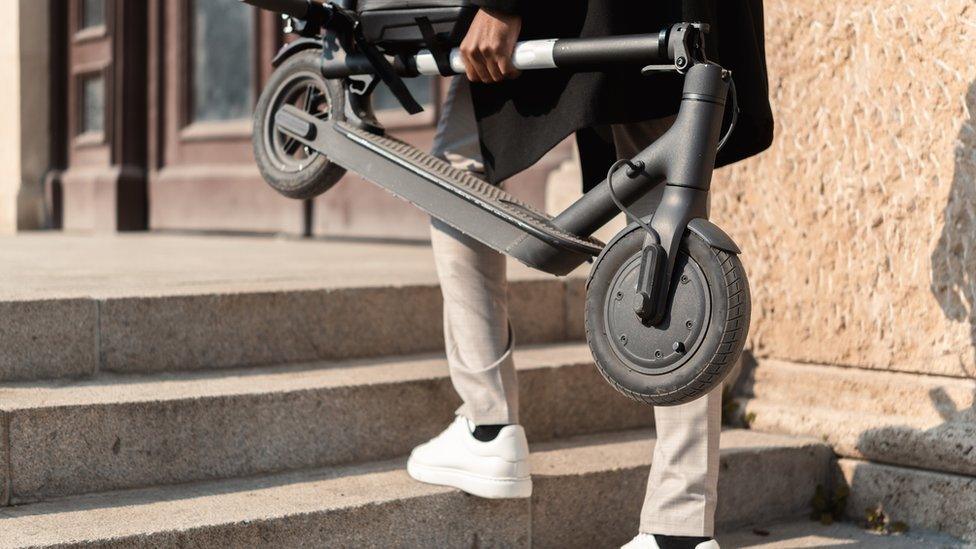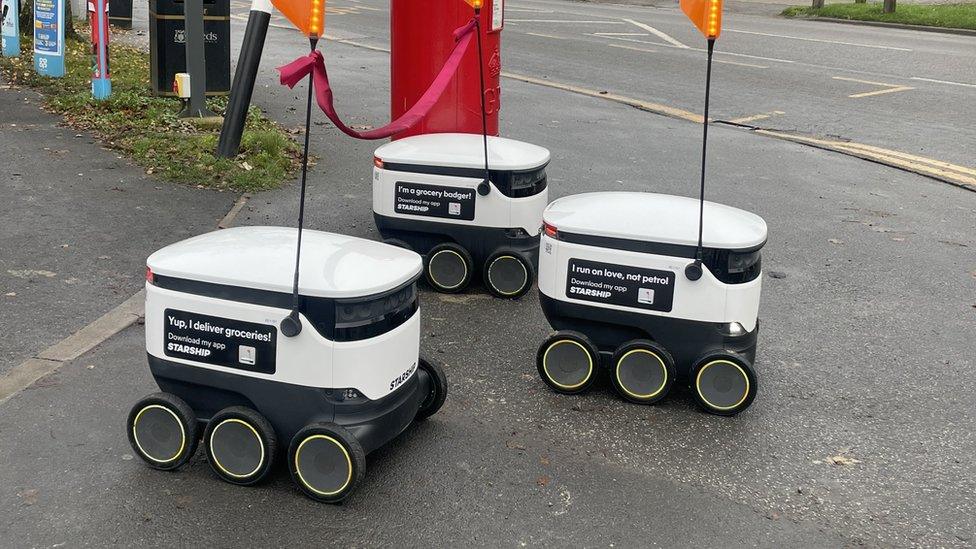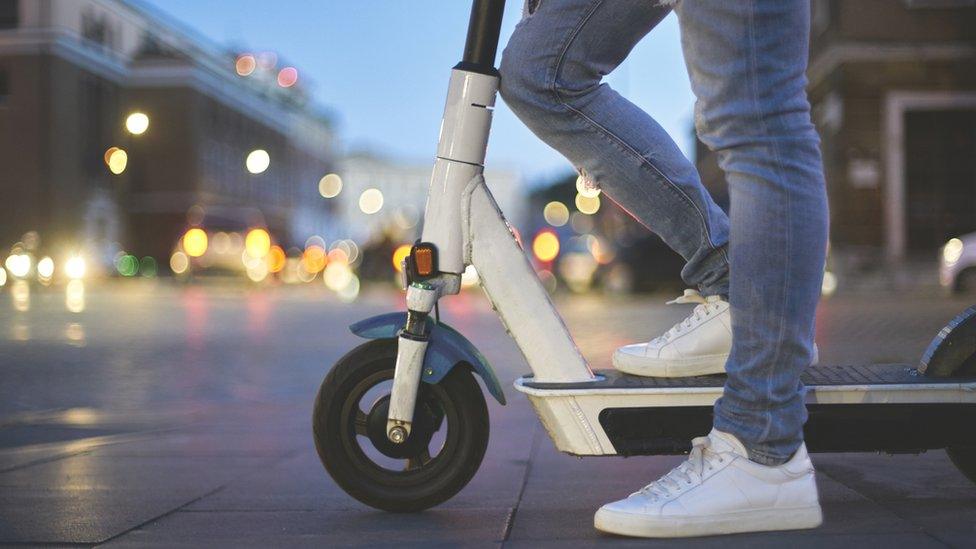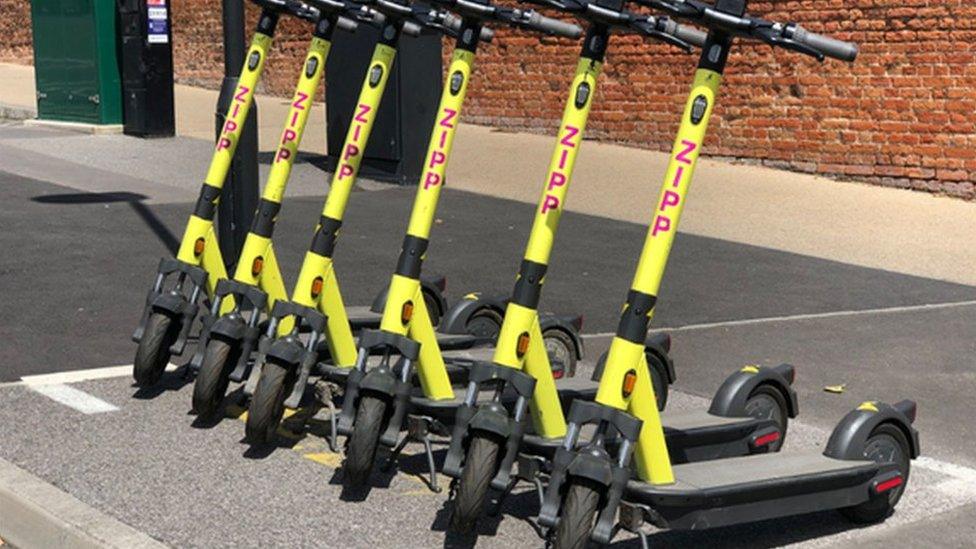South Western Railway's e-scooter ban comes into force
- Published

Several organisations have already banned e-scooters
An e-scooter ban on South Western Railway's (SWR) stations and trains has come into force.
The operator, which runs services in Devon, Somerset, Wiltshire, Berkshire, Hampshire and Dorset, said e-scooters' lithium-ion batteries can pose a fire risk.
It said the chances of a fire were small but the potential risk was "unacceptable".
The ban also covers e-unicycles, e-skateboards and hoverboards.
It coincides with the move to ban e-scooters by other operators across the country, while Transport for London (TfL) launched its ban in 2021.
'Safety priority'
Passengers will also be prohibited from charging their devices at stations or on trains, the operator said.
Electric wheelchairs and e-bikes are exempt, as are mobility scooters for those with accessibility needs.
Jane Lupson, SWR's head of safety, said: "Reports of incidents involving e-scooters catching fire on National Rail services or infrastructure are increasing and the potential risk that they pose is not acceptable to our customers and colleagues.
"After some consideration, and in line with other partners in the rail industry, we will be banning e-scooters on our trains and at our stations from Thursday 1 June.
"We understand that these devices are popular, but the safety of our customers and staff is our number one priority, so until greater regulation and testing can be brought in to ensure the safety of those travelling on trains, e-scooters will remain banned."

Follow BBC News South West on Twitter, external, Facebook, external and Instagram, external. Send your story ideas to spotlight@bbc.co.uk.
Related topics
- Published1 June 2023
- Published30 May 2023

- Published23 May 2023

- Published9 May 2023
